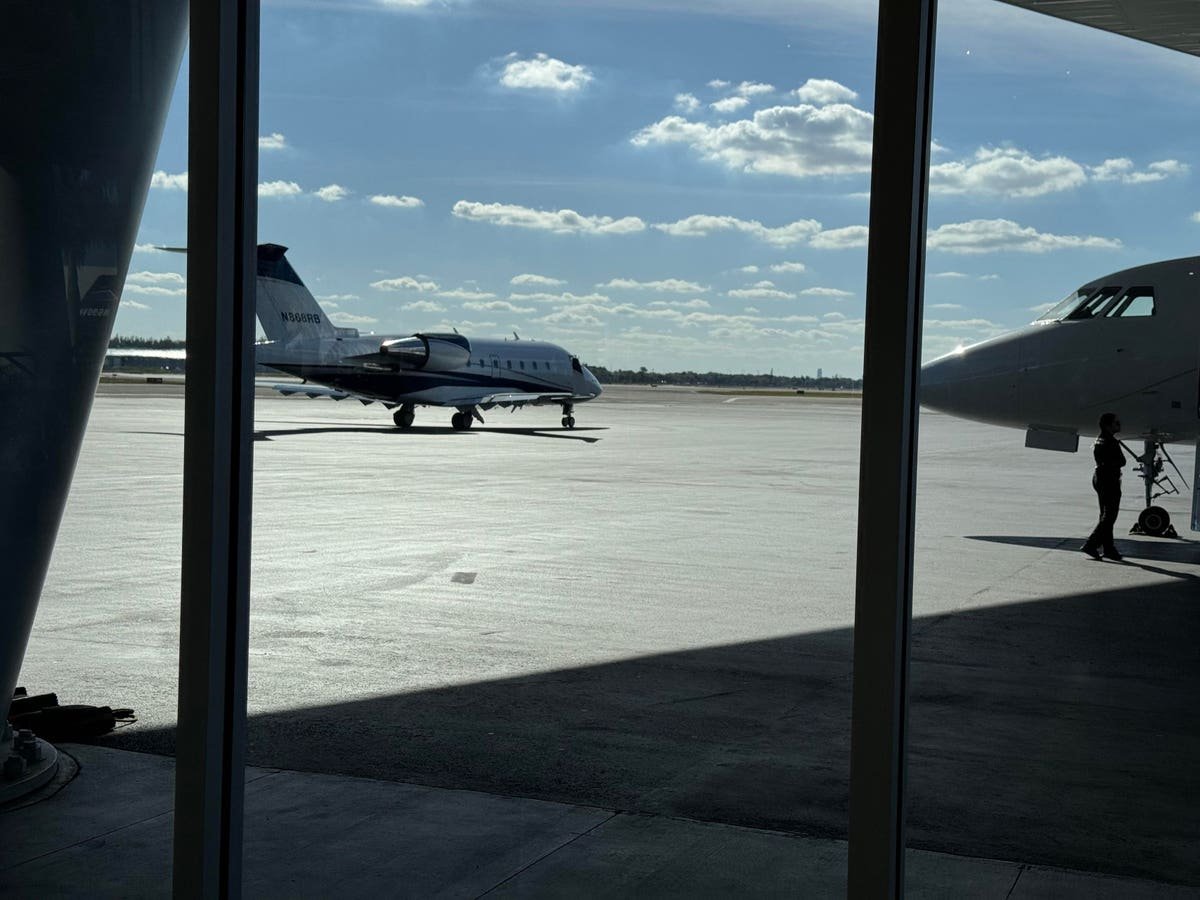Earlier this month, the IRS issued a press release saying it was targeting private jet owners for impermissible reductions. It said that based on the results of dozens of initial audits, it could expand its focus on aircraft owners in its search for extra tax revenues. While the industryâs trade group, the National Business Aviation Association, rebuked the agency for using private jets as a focal point to trigger audits of large companies and UHNWs, everyone agrees the subject is complicated.
In fact, IRS Commissioner Danny Werfel called the subject a âcomplex area.â
Speaking on an NBAA webinar this morning, a panel of experts said owners of private aircraft should start preparing now for a possible audit.
Following the IRS’s announcement that it will target business jet owners for audits, experts say … [+]
Doug Gollan
Werfel in the release stated, âWith expanded resources, IRS work (on the audits of private jet owners) will take off. These aircraft audits will help ensure high-income groups arenât flying under the radar with their tax responsibilities.â
The experts expect the first round of audit notices imminently.
However, they questioned how quickly the IRS will be able to expand its net.
Ryan DeMoor, Head of Aviation Tax at MySky, a management platform for aircraft owners, says in addition to hiring new auditors, getting them up to speed on tax law as it applies to business aircraft wonât be easy.
âIt took me a couple of years,â DeMoor told listeners.
Danny Werfel, commissioner of the Internal Revenue Service (IRS), arrives for a Senate Finance … [+]
© 2023 Bloomberg Finance LP
The possibility of a slew of audits by agents who arenât well-versed in the nuances means that aircraft owners should be preparing now.
John B. Hoover, an attorney at Holland & Knight, says a robust description of the business purpose for each flight should be mandatory.
In addition to a list of passengers, he suggests an outline of their complete itinerary, from the time they land to their meetings and even getting to the hotel, as well as the purpose of each meeting.
Since audits typically go back three years and up to six years, recollections of specific trips fade, and executives may no longer be with the company.
The details should be added contemporaneously, and he says itâs not too late to do so for all 2023 travel as part of the year-end tax process.
Beyond that, he suggests ensuring you have robust detail and noted that it was added after the fact.
The more detailed the information, the less likely auditors will need to ask questions.
David Shannon, an attorney with Lewis & Brisbois, is preparing clients with mock audits.
A specialist attorney who was not part of the webinar, David T. Norton of Shackelford, Bowen, McKinley & Norton, LLP, says, âWeâve been telling clients since the passage of the 2017 100% bonus depreciation legislation that if, or when the IRS ever started to more actively turn back to auditing aircraft, then those who took the full 100% bonus would likely be at the top of the stack of audits, and I think that is still the case.â
He lists off a series of questions owners need to make sure they can answer: Did the correct entity take the bonus? Was it really being used by a company with ongoing business activity? Will the company be able to show that they met the requirement for at least 50% qualified business use each year after taking the bonus? Was personal use being tracked and accounted for properly? Was expensing applied correctly where executive commuting was occurring? Was it applied correctly with respect to entertainment expensing?
Vedder Priceâs David Hernandez, a former DOT and FAA prosecutor, believes, âThe IRS will scrutinize business trips in which executives spent three or four days golfing, hunting or other recreational events. Business trips to common vacation and leisure destinations with family and friends, sporting events, and international getaways are always suspicious.â
He adds, âThe IRS will look at the primary purpose of the trip, and the biggest problem for the companies will be to prove the business purpose from several years ago, and the IRS admits that this is a complex area of the law and that record-keeping will be challenging.â
Hernandez and Hoover think the IRS will focus on commuting and travel by executives to second homes.
Hoover expects some executives may argue for those flights if their office was closed or not available during Covid, something that would test new ground.
Shannon points to the NBAAâs Personal Use of Business Aircraft handbook, which spans over 40 pages, as something all private aircraft owners and their legal and tax teams should review immediately.
According to the experts, the bottom line is now is the time to make sure your records are in order, the business structure is compliant, and you are ready if you get that audit notice.



